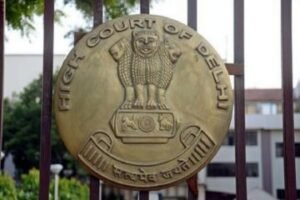Appeals Against ITAT Order Will Lie Only Before The High Court Within Whose Jurisdiction The Assessing Officer Is Situated
Case: Pr. Commissioner of Income Tax-I, Chandigarh v. ABC Papers Limited
Coram: Justices U.U. Lalit, S. Ravindra Bhat and P.S. Narasimha
Case No.: Civil Appeal No. 4252 Of 2022
Court Observation: “We are thus tasked to resolve the issue as to which High Court would have the jurisdiction to entertain an appeal against a decision of a Bench of the ITAT exercising jurisdiction over more than one state, particularly when case(s) of same assessment year are transferred under Section 127 of the Act.”
“While interpreting a judicial remedy, a Constitutional Court should not adopt an approach where the identity of the appellate forum would be contingent upon or vacillates subject to the exercise of some other power. Such an interpretation will clearly be against the interest of justice.”
“The power of transfer exercisable under Section 127 is relatable only to the jurisdiction of the Income Tax Authorities. It has no bearing on the ITAT, much less on a High Court. If we accept the submission, it will have the effect of the executive having the power to determine the jurisdiction of a High Court. This can never be the intention of the Parliament. The jurisdiction of a High Court stands on its own footing by virtue of Section 260A read with Section 269 of the Act. While interpreting a judicial remedy, a Constitutional Court should not adopt an approach where the identity of the appellate forum would be contingent upon or vacillates subject to the exercise of some other power. Such an interpretation will clearly be against the interest of justice. Under Section 127, the authorities have the power to transfer a case either upon the request of an assessee or for their own reasons. Though the decision under Section 127 is subject to judicial review or even an appellate scrutiny, this Court for larger reasons would avoid an interpretation that would render the appellate jurisdiction of a High Court dependent upon the executive power. As a matter of principle, transfer of a case from one judicial forum to another judicial forum, without the intervention of a Court of law is against the independence of judiciary. This is true, particularly, when such a transfer can occur in exercise of pure executive power. This is a yet another reason for rejecting the interpretation adopted in the case of Sahara. “For the reasons stated above, we hold that the decision of the High Court of Delhi in Sahara and Aar Bee do not lay down the correct law and therefore, we overrule these judgments”.
“In conclusion, we hold that appeals against every decision of the ITAT shall lie only before the High Court within whose jurisdiction the Assessing Officer who passed the assessment order is situated. Even if the case or cases of an assessee are transferred in exercise of power under Section 127 of the Act, the High Court within whose jurisdiction the Assessing Officer has passed the order, shall continue to exercise the jurisdiction of appeal. This principle is applicable even if the transfer is under Section 127 for the same assessment year(s)”
Previous Posts
Preliminary Issues Are Determined Purely On Point Of Law In Isolation To Facts: Tripura High Court
Pension Is Deferred Salary, Right To Pension A Constitutional Right: Kerala High Court
Keywords
Appeals Against ITAT,




